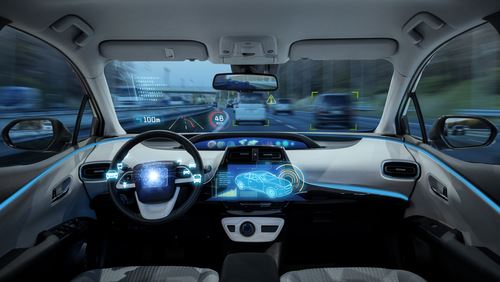
Revolutionary tech mogul Elon Musk – founder and former chairman of Tesla Motors – has made it one of his personal quests to develop the world’s first autonomously operated cars. More commonly known as self-driving cars, Musk and other tech giants are convinced that such cars are the future of passenger motor vehicle transportation – putting the “auto” in “automobile.”
Even the U.S. Department of Transportation has hopped on the self-driving bandwagon. According to a section on automated vehicles features on the National Highway Transportation Safety Administration’s (NHTSA) website, “[fully] autonomous cars and trucks that drive us instead of us driving them will become a reality.”
However, while the NHTSA considers the future ubiquity of self-driving cars to be a foregone conclusion, people remain skeptical about whether society should be heading down that path in the first place. Regardless of your feelings on self-driving car technology, the notion of America’s highways crawling with self-driving cars raises big questions about accident liability.
Liability of Car Owners
The current legal framework for car accident liability in the United States is negligence. Under general negligence principles, people owe others a legal duty to exercise reasonable care when driving a car to prevent any reasonable foreseeable harms that would result from driving.
Thus, drivers who fail to exercise such care while driving are liable for another person’s reasonably foreseeable injuries that result from their actions. However, a person is not responsible for injuries they involuntarily cause others. Liability for negligence, therefore, depends on voluntary acts.
So, if a fully autonomous car gets into a “collision,” how can the owner be responsible for the ensuing damages when they exercised no control over the vehicle? A fully autonomous vehicle is considered to have complete independence regarding its operations. An operator is not required for a fully autonomous car to function. Therefore, under the current legal regime, self-driving car owners may not be liable for accidents involving fully autonomous cars.
However, fully autonomous cars won’t simply pop into existence out of nowhere. Part of the foreseen evolution of the self-driving car involves its semi-autonomous ancestor. Semi-autonomous cars are considered to have qualities of a fully-autonomous vehicle, but require some degree of human intervention to function by design.
Since semi-autonomous cars are designed to only operate with some level of human intervention, a human will still be liable for any accidents that could have been prevented by the human operator through the exercise of reasonable care.
Car Manufacturer Liability
More than negligence principles, products liability is a promising theory under which one could find responsibility for driverless car accidents. Under general principles of products liability, car manufacturers may be liable for injuries caused by a dangerous defect in their cars.
Products liability can be established using an approach similar to negligence. According to products liability negligence principles, car manufacturers owe a duty to the consuming public to exercise reasonable care to prevent introducing a car that poses an unreasonable risk of injury to people. Accordingly, car manufacturers must take reasonable steps in the design and manufacturing process of a product.
Accordingly, if the injured-plaintiff in a self-driving car accident discovered that the car manufacturer knew how that particular model of self-driving car was prone to the type of accident that caused the plaintiff’s injuries, the manufacturer would be liable for the plaintiff’s injuries if they failed to exercise reasonable care find a safer design.
Productions liability can also be understood as a strict liability tort. As a result, car manufacturers are liable for all injuries caused by a product that constitutes an unreasonable risk of harm to others, regardless of the level of care the manufacturer exercised to prevent it. Under strict liability principles, a product is considered to pose an unreasonable risk of harm to others if the gravity and likelihood of the harm outweigh its societal benefit.
Thus, if a self-driving car was involved in an accident, its manufacturer may avoid liability if it can show that such accidents are so rare and infrequent so that the benefits it provides to the public outweigh the likelihood and extent of the harm.
Injured in a Car Accident? The Mitchell & Danoff Law Firm Can Help!
If you or a loved one sustained injuries in a car accident caused by another driver’s negligence, you should find an experienced San Jose car accident attorney to represent you. At the Mitchell & Danoff Law Firm, our skilled San Jose personal injury advocate, Tab Mitchell, has years of experience helping injured plaintiffs recover a settlement or verdict to help cover their injuries.
For more information on how the Mitchell & Danoff Law Firm can assist you, call us at (831) 219-2110 for a free consultation.
